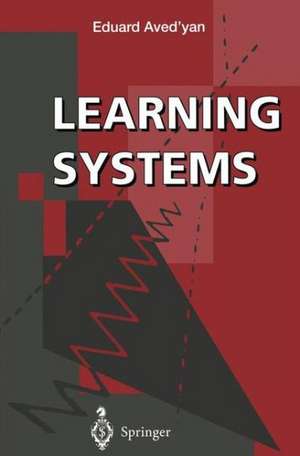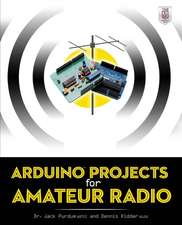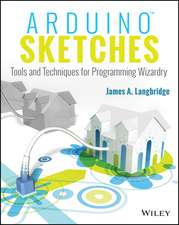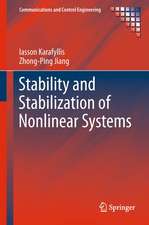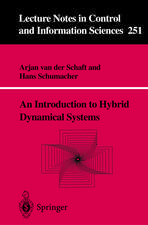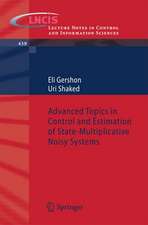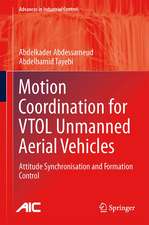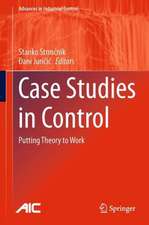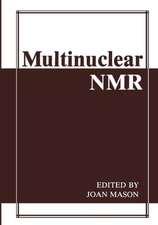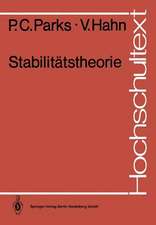Learning Systems
Autor Eduard Aved'yan Editat de J. Mason, P.C. Parksen Limba Engleză Paperback – 25 oct 1995
Preț: 378.92 lei
Nou
Puncte Express: 568
Preț estimativ în valută:
72.50€ • 75.91$ • 59.99£
72.50€ • 75.91$ • 59.99£
Carte tipărită la comandă
Livrare economică 05-19 aprilie
Preluare comenzi: 021 569.72.76
Specificații
ISBN-13: 9783540199960
ISBN-10: 3540199969
Pagini: 136
Ilustrații: XIII, 119 p.
Dimensiuni: 155 x 235 x 7 mm
Greutate: 0.2 kg
Ediția:1st Edition.
Editura: SPRINGER LONDON
Colecția Springer
Locul publicării:London, United Kingdom
ISBN-10: 3540199969
Pagini: 136
Ilustrații: XIII, 119 p.
Dimensiuni: 155 x 235 x 7 mm
Greutate: 0.2 kg
Ediția:1st Edition.
Editura: SPRINGER LONDON
Colecția Springer
Locul publicării:London, United Kingdom
Public țintă
ResearchCuprins
1 Introduction to Learning Systems.- 1.1 Systems, Memory.- 1.2 Performance Index.- 1.3 Learning Algorithms.- 1.4 Some Examples of Learning Systems.- References.- 2 Deterministic Algorithms.- 2.1 Simple Projection Algorithms in Spaces With Different Norms (Structure, Convergence, Properties).- 2.2 Modified Projection Algorithms With a High Rate of Convergence.- References.- 3 Deterministic and Stochastic Algorithms of Optimisation.- 3.1 Deterministic Methods for Unconstrained Minimisation.- 3.2 Stochastic Approximation and Recurrent Estimation.- References.- 4 Stochastic Algorithms: The Least Squares Method in the Non-Recurrent and Recurrent Forms and the Gauss-Markov Theorem.- 4.1 The Least Squares Method in Recursive and Non-Recursive Forms (The White Noise Case).- 4.2 The Gauss-Markov Theorem.- 4.3 Example System.- References.- 5 Stochastic Algorithms.- 5.1 Algorithms With Forgetting Factor.- 5.2 The Least Squares Method by Correlated Noise in the Non-Recursive and Recursive Forms: Connection With Decorrelation Procedures.- 5.3 Introduction to the Kaiman filter [1], [3].- References.- 6 Multilayer Neural Networks.- 6.1 Multilayer Neural Network as a Non-Linear Transformer. The Kolmogorov and Cybenko Theorems.- 6.2 Learning Algorithms for Single Elements of Multilayer Neural Networks.- References.- 7 Learning Algorithms for Neural Networks.- 7.1 The Back-Propagation Algorithm for MNN Learning.- 7.2 Autonomous Algorithms for Adjusting MNNs.- References.- 8 Identification and Control of Dynamic Systems Using Multilayer Neural Networks.- 8.1 Identification of Dynamic Systems Using Multilayer Neural Networks.- 8.2 Control of Dynamic Systems Using Multilayer Neural Networks.- 8.3 Control of Non-Linear Dynamic Systems Using Multilayer Neural Networks.- References.- 9 The Cerebellar Model Articulation Controller (CMAC).- 9.1 Introduction to CMAC.- 9.2 Data Storage and Learning Process in the CMAC.- 9.3 Albus’ Learning Algorithm.- 9.4 Modified Albus’ Algorithm.- 9.5 CMAC for Identification and Adaptive Control.- References.
